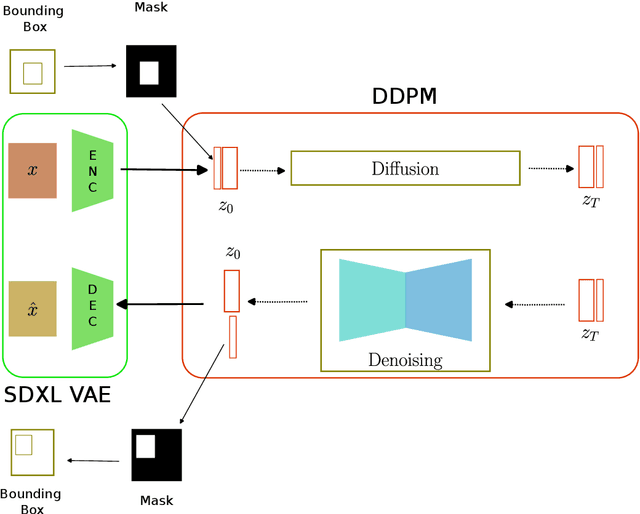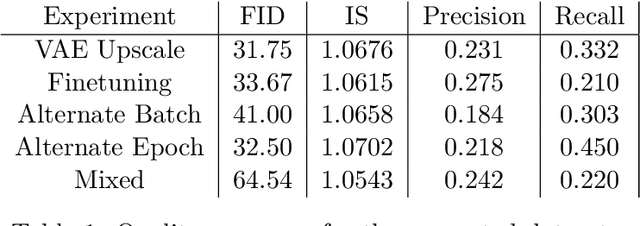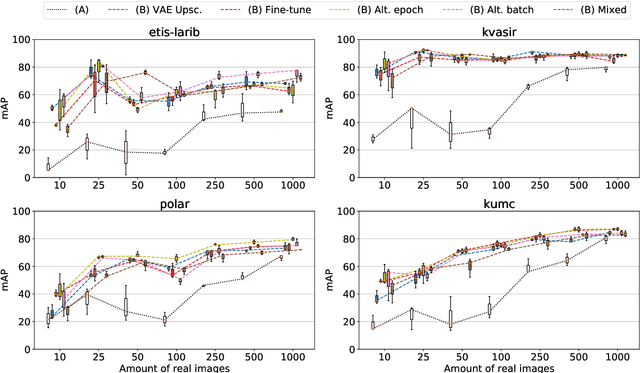Data Augmentation with Diffusion Models for Colon Polyp Localization on the Low Data Regime: How much real data is enough?
Paper and Code
Nov 28, 2024


The scarcity of data in medical domains hinders the performance of Deep Learning models. Data augmentation techniques can alleviate that problem, but they usually rely on functional transformations of the data that do not guarantee to preserve the original tasks. To approximate the distribution of the data using generative models is a way of reducing that problem and also to obtain new samples that resemble the original data. Denoising Diffusion models is a promising Deep Learning technique that can learn good approximations of different kinds of data like images, time series or tabular data. Automatic colonoscopy analysis and specifically Polyp localization in colonoscopy videos is a task that can assist clinical diagnosis and treatment. The annotation of video frames for training a deep learning model is a time consuming task and usually only small datasets can be obtained. The fine tuning of application models using a large dataset of generated data could be an alternative to improve their performance. We conduct a set of experiments training different diffusion models that can generate jointly colonoscopy images with localization annotations using a combination of existing open datasets. The generated data is used on various transfer learning experiments in the task of polyp localization with a model based on YOLO v9 on the low data regime.
 Add to Chrome
Add to Chrome Add to Firefox
Add to Firefox Add to Edge
Add to Edge